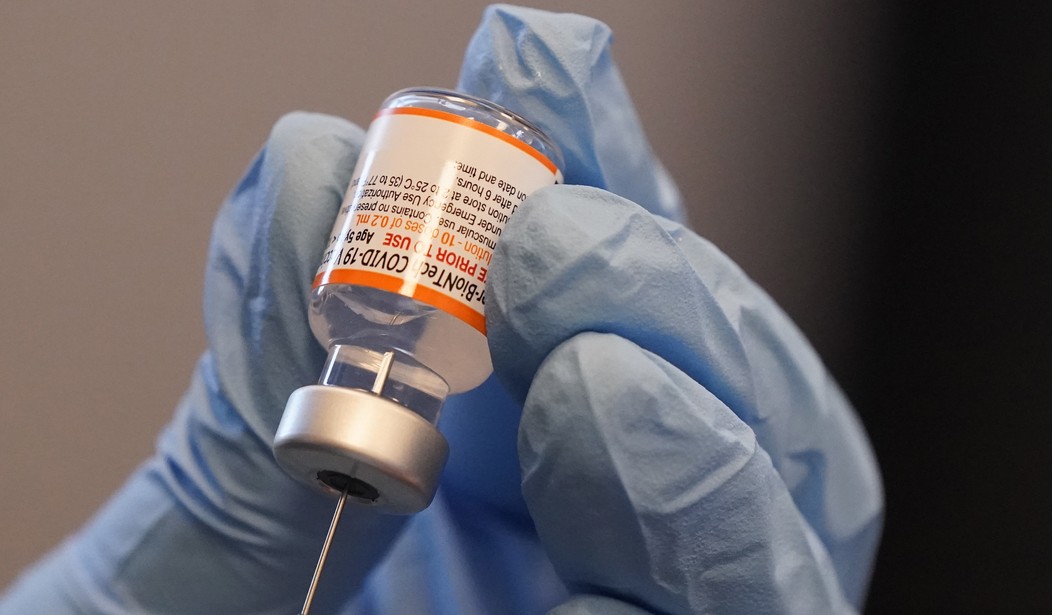As many as 95 institutes of higher learning across the United States — the institutions that would be assumed to Follow the Science™ perhaps above all — are still, at this late date in 2023, requiring across-the-board COVID-19 vaxxes for all students going into the fall semester. Of course, college students are mostly in their late teens and early twenties and therefore at minimal risk from infection.
Via No College Mandates:
It is the fundamental right of each individual to freely choose which medical interventions to receive based on informed consent. Neither sufficient clinical trail data for young adults nor long-term safety data exist for these recently developed and novel vaccines. Because the coercive nature of college vaccine mandates completely disregards students’ individual freedom and right to bodily autonomy, we strongly believe that these mandates are unconstitutional, unethical, unscientific and undoubtedly contributing to the psychological distress and the staggering rise in mental health issues among young adults. Institutions of higher learning which impose vaccine mandates do not uphold the very civil rights and liberties they teach and purport to vehemently defend.
The obvious reason that universities and colleges are still enforcing immoral and ineffective COVID-19 vax mandates on their helpless student populations in 2023 — which has nothing to do with actual public health as their PR departments universally claim — while virtually every other large institution has dropped them is that they depend heavily on pharmaceutical industry dollars to fund their various research programs.
Via The Journal of Law, Medicine & Ethics (emphasis added):
Presently, the pharmaceutical industry funds about half of the costs of continuing medical education (CME) programs in the U.S. This contributes to the ethical problems that pervade the relationship between medicine and the pharmaceutical industry: trustworthiness and conflicts of interest. The problems are exacerbated by rationalizations prevalent on both sides that deny the ethical concerns. Commercialism and commercial bias are highly visible at large CME gatherings, and available data, while scanty, back up the view that physician attendees’ subsequent prescribing practices are influenced by the commercial message. The industry believes that it will recoup $3.56 in increased sales for every dollar that it invests in CME.
Via University of Michigan Life Sciences Institute (emphasis added):
The University of Michigan and Sun Pharma Advanced Research Company (SPARC) have launched a partnership to accelerate the development of potential new medicines for a wide range of diseases.
The new venture — which represents U-M’s first university-spanning partnership with a major international pharmaceutical research company in almost a decade — will provide up to a total of $10 million in financial support and in-kind industry resources to move various promising drug-discovery research projects within the university toward the ultimate goal of new therapies for patients.
This is a worldwide phenomenon, not confined to the United States.
Via Financial Times (emphasis added):
Three of the world’s biggest pharmaceuticals groups have teamed up with a trio of Britain’s top universities to create a £40m fund to help turn promising scientific research into new medicines.
AstraZeneca and GlaxoSmithKline of the UK and Johnson & Johnson of the US will contribute financing and expertise to the collaboration with Cambridge university, Imperial College London and University College London.
All of those cash infusions purchase enormous influence over institutional policy and other matters; anyone who claims otherwise is either lying or ignorant of how the world works.
This is truly sick stuff — some might say downright evil — on the part of the university administrators enforcing these draconian schemes: sacrificing the health of their own students, potentially sickening them for life or even killing them, for the sake of maintaining the lucrative financial relationships with the pharmaceutical industry that their research departments depend on.










